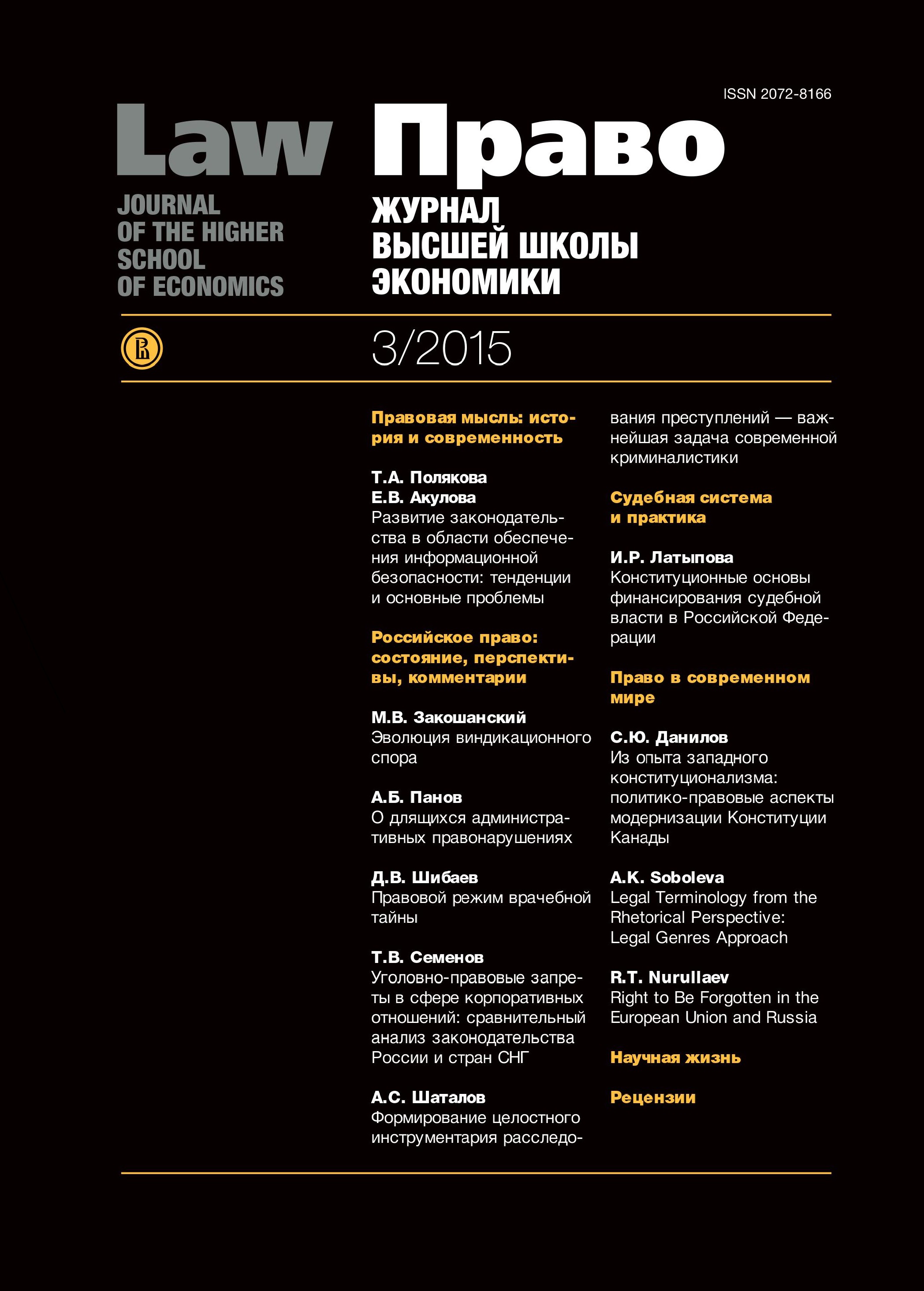Overcriminalization in the USA
Abstract
The subject matter of the study is the issue of overcriminalization and strict punishment in the USA. The paper features the reasons for this phenomenon, attitude in society to criminal law as a tool to tackle social and economic issues and financial crisis. The study is supported with cases showing the excessive use of criminal liability including the RICO Act. The author points to an inadequate attitude to the subjective aspect of the elements of crime (mens rea) in the bills submitted o the US Congress and a wide interpretation of federal laws by courts. The paper explores the consequences of this situation including the impossibility to know the bulk of laws and acts and the violation of procedural guarantees. A special problem is seen in overcrowded prisons causing the violation of basic human rights and failure to meet basic material needs. A special attention is given to the Criminal Responsibility of Juveniles, the decisions of the US Supreme Court related to the application of milder punishments as to minors. To overcome criminalization regarding the specified group, American researchers propose restorative justice. The latter promotes to decreasing recidivism among minors. A proposition is made to set the possibility to apply the clauses related to the criminal responsibility of minors to the people older than 18 but not achieving 25 years of age. The paper studies the origin of the campaign against overcriminalization, which started developing after approving The Model Penal Code, and is not politically motivated. Recommendations from American legal academics are given regarding federal legislation and courts in particular the proposition on admitting innocent misrepresentation (mistake) as an immunity from criminal prosecution. The aim of the paper is to arrange the situation in the US to study and counteract similar phenomena in Russia as the issue remains acute.


















